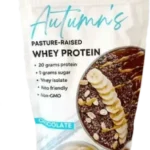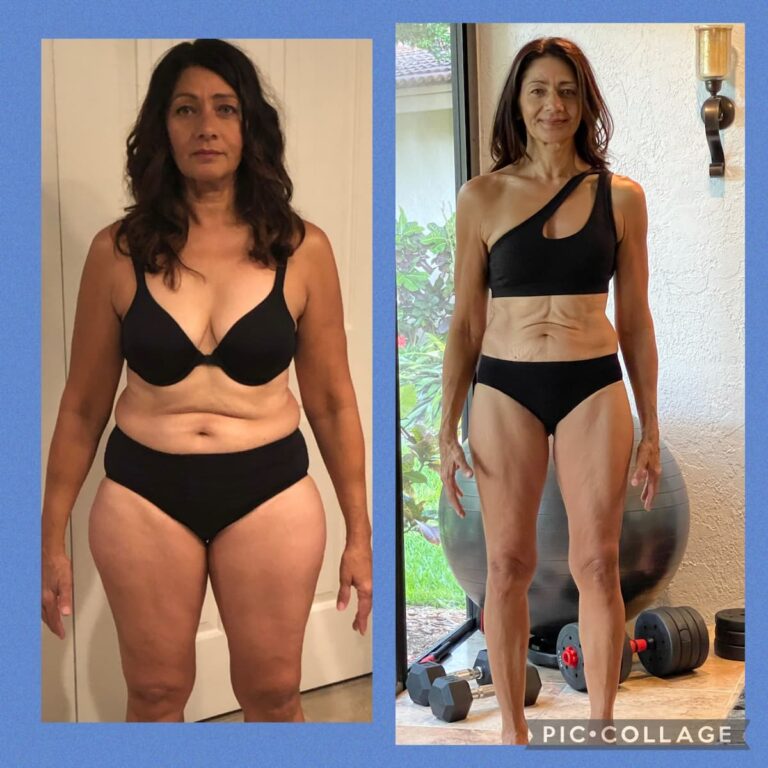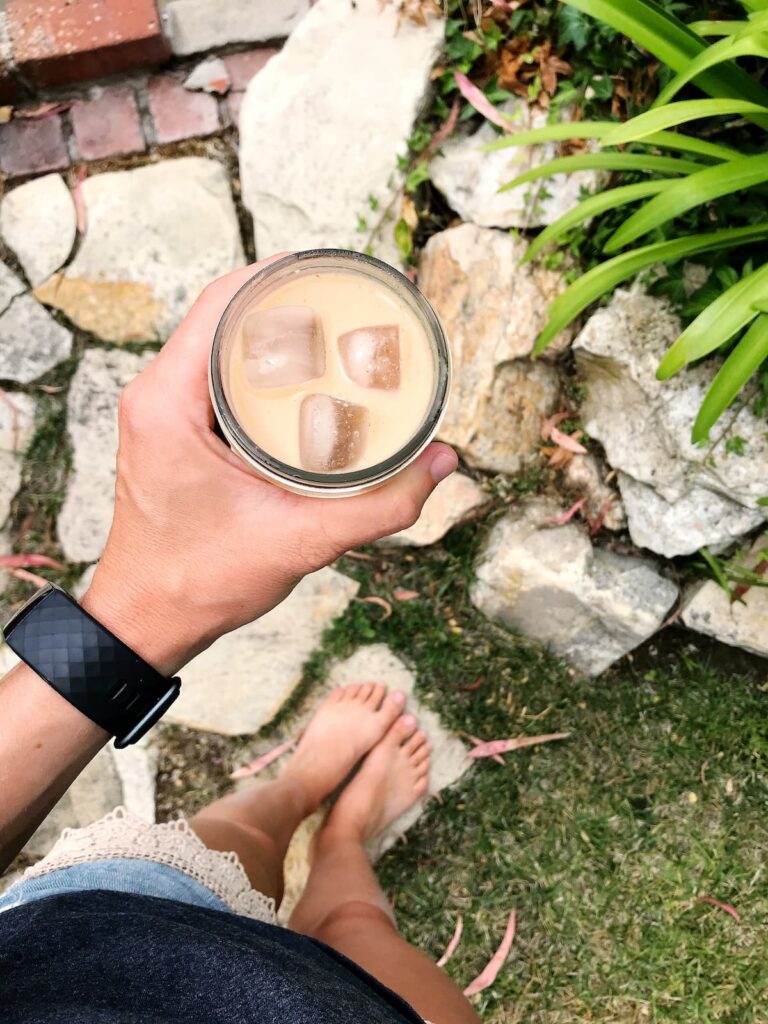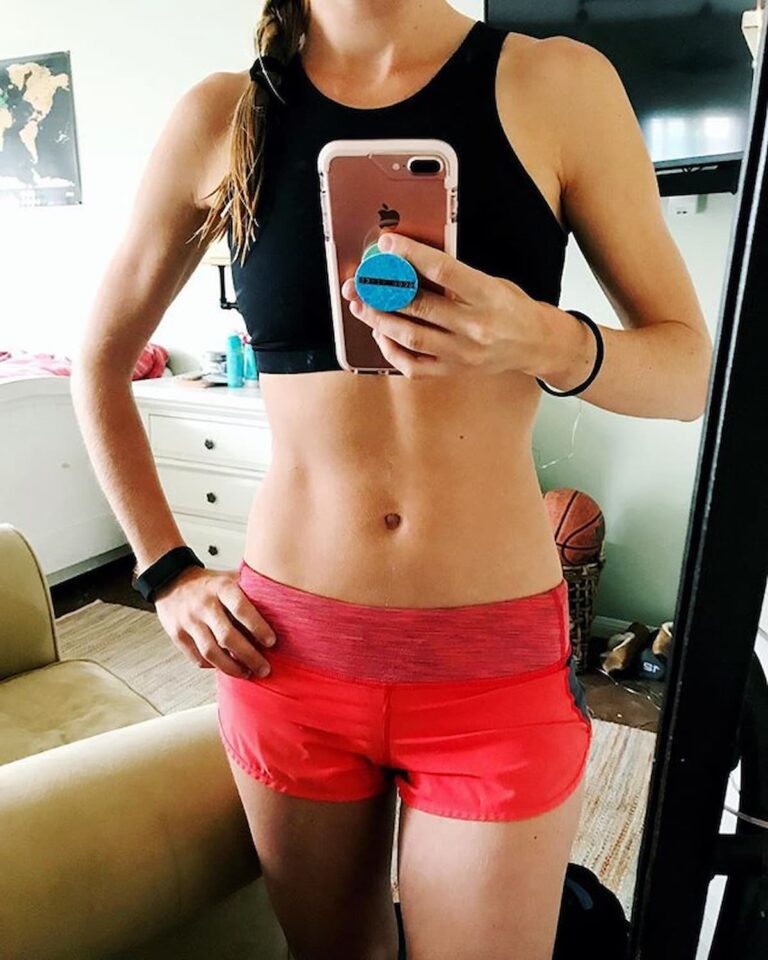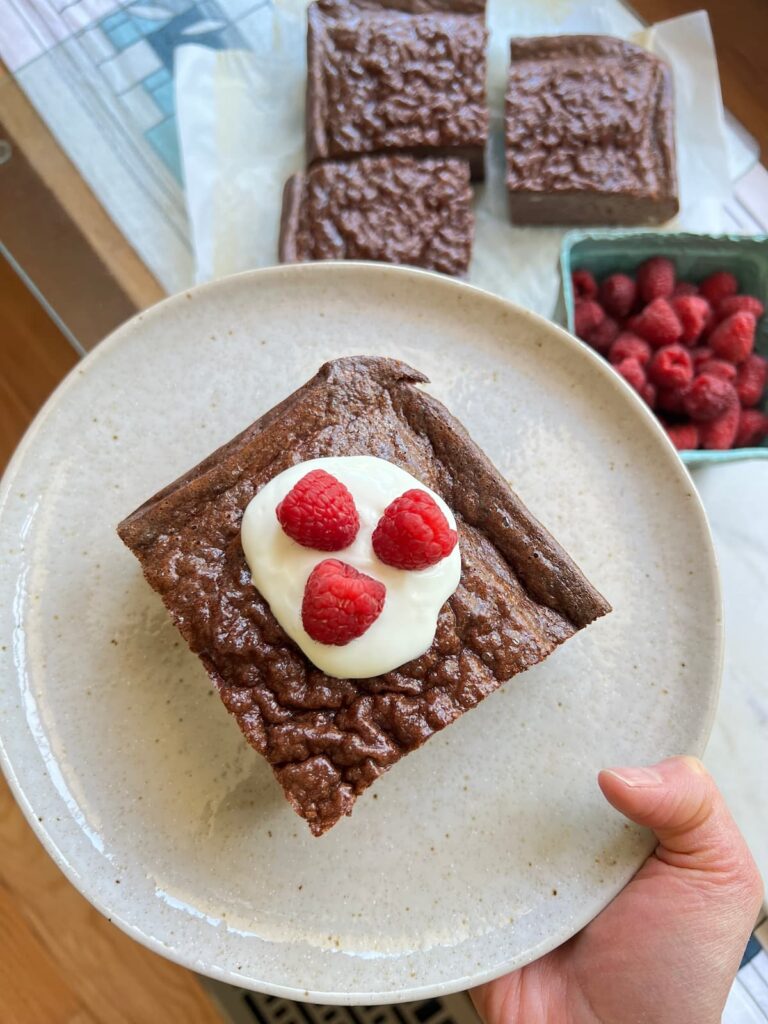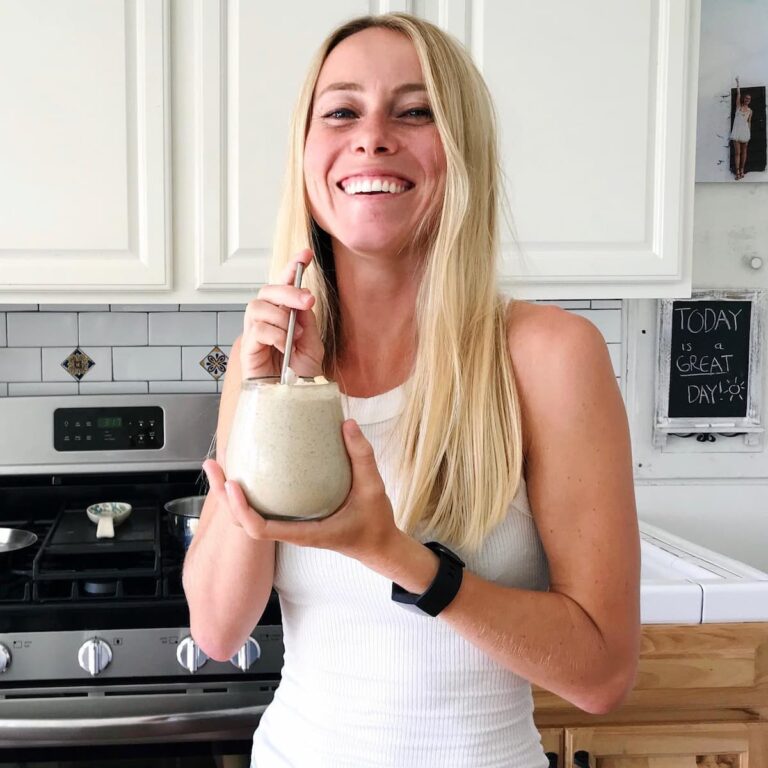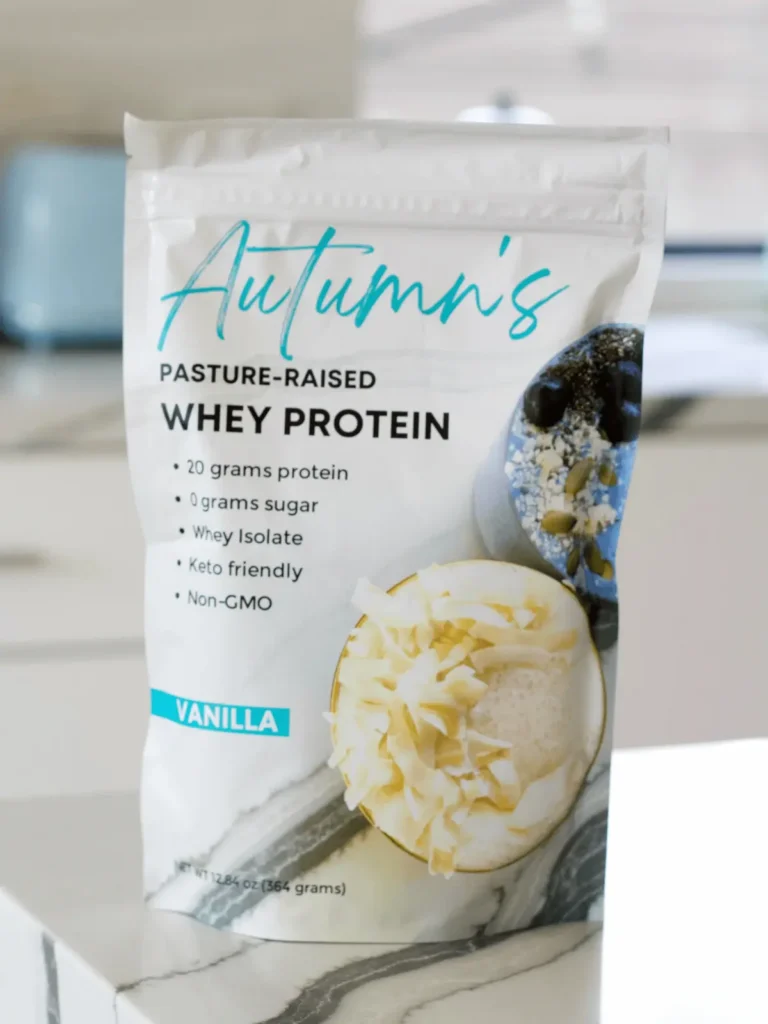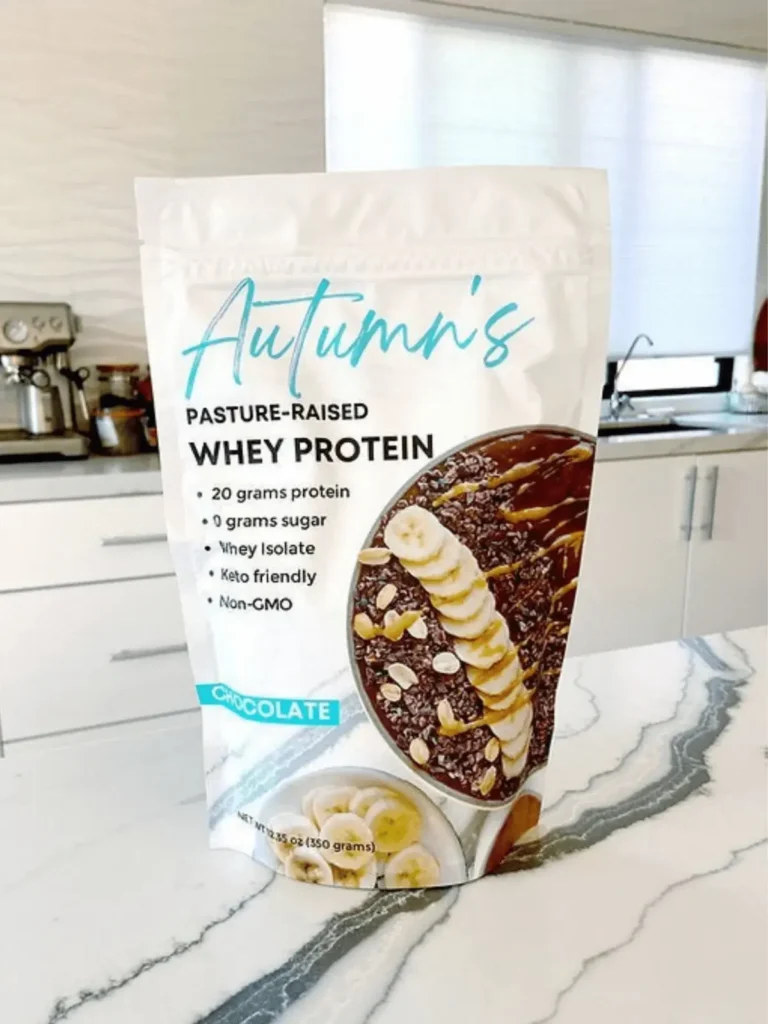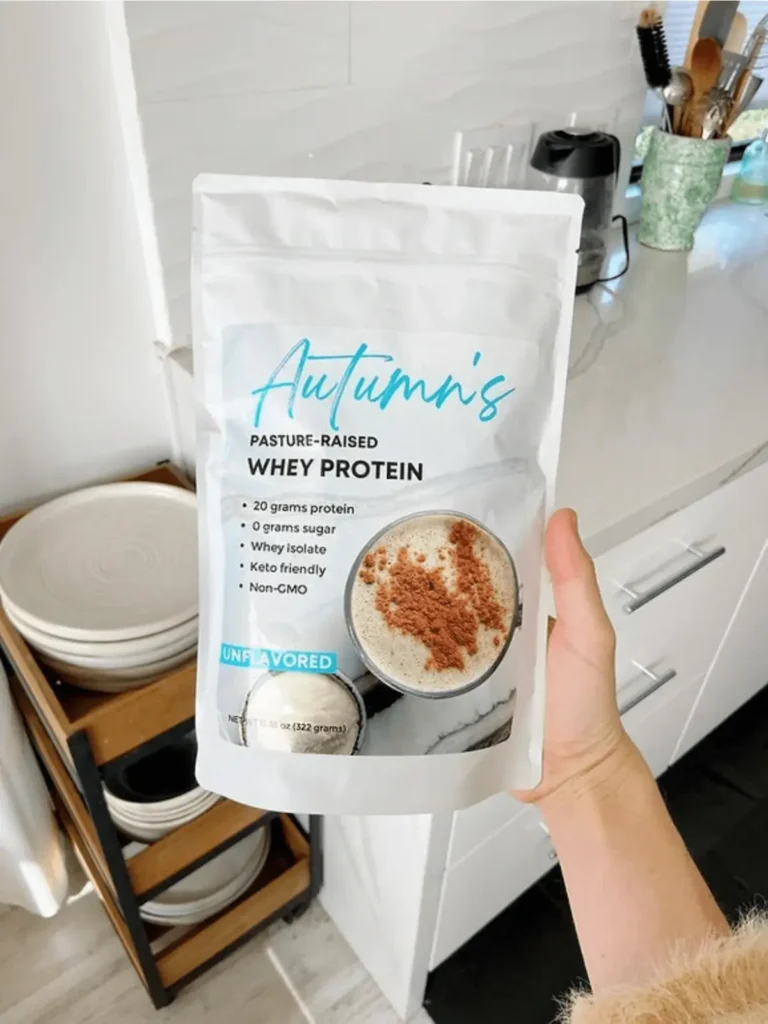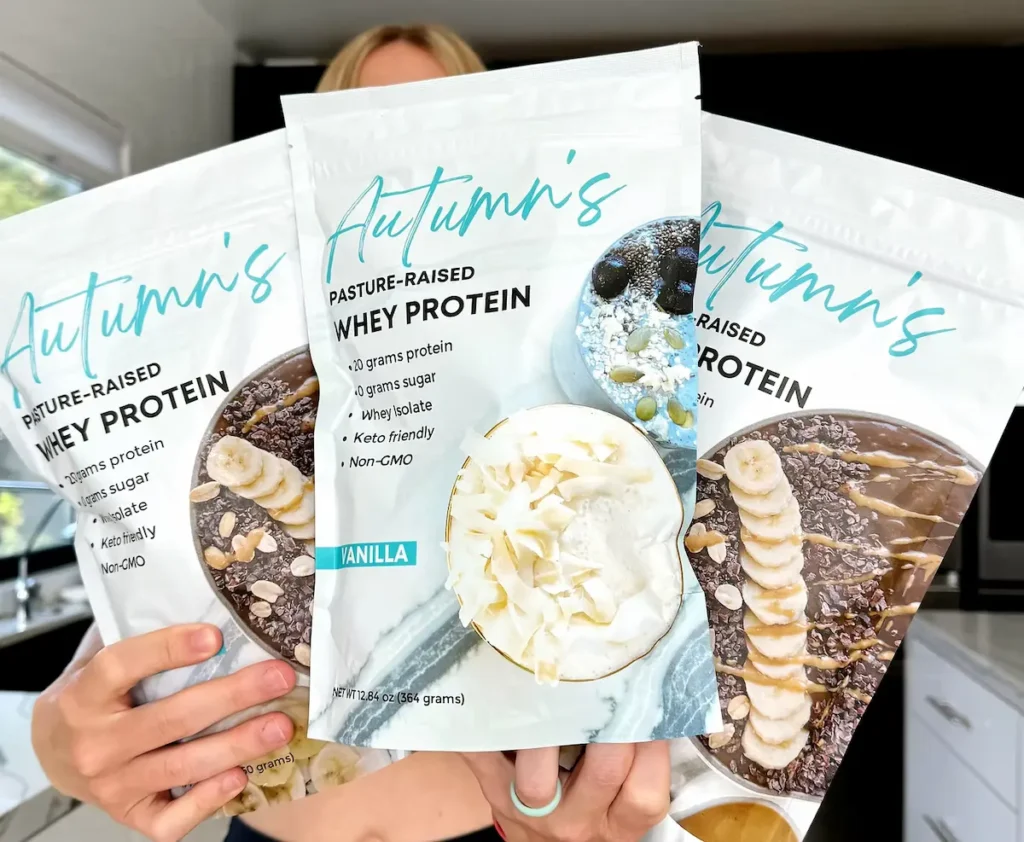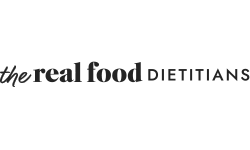These are 20 simple tips to help you lose belly fat without counting calories.
Today I’m sharing 20 different ways that you can tap into fat burning mechanisms without ever counting a single calorie. These are simple and science-backed strategies that can help you achieve your weight loss and wellness goals.
Scroll down to get started!

1. Add Magnesium
Poor sleep quality can raise our stress hormone cortisol. High levels of cortisol have been tied to weight gain around the belly. There are a few natural ways to improve sleep quality, but one of my favorites is incorporating magnesium about 30 minutes before bed.
THIS is one of my favorite magnesium brands and THIS is my favorite budget friendly magnesium brand.
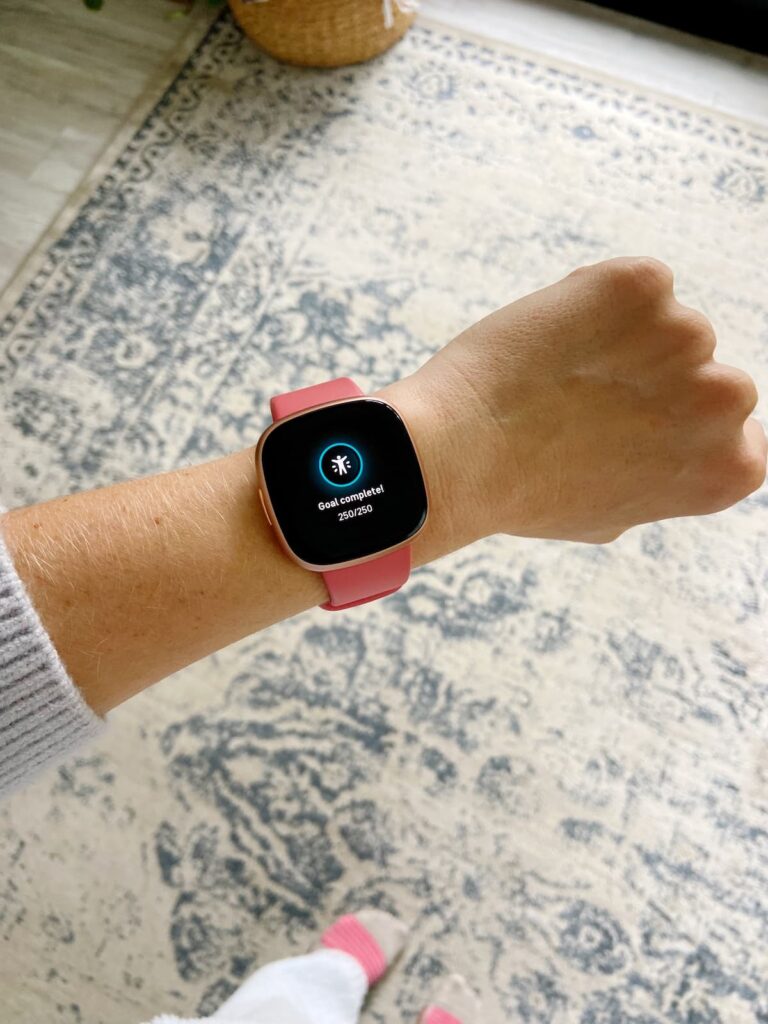
2. Add 250 Steps Per Hour
Even if you’re exercising in the morning, most people spend the rest of the day sitting. The more time we sit, the less our muscles get the opportunity to contract and absorb excess glucose from the blood supply. Adding 250 steps over an 8 hour work day can boost your daily step count by 2000 steps per day. Plus, 250 steps is only about 2 minutes of walking (which can be done pacing around your office or house, if needed).
I like to use a FitBit to keep track of my steps because it has an hourly reminder for you to hit 250 steps. I currently have an older model, but THIS is the FitBit that’s on my Christmas list this year! (Hint, hint to my husband.)
3. Use Avocado Instead Of Bananas In Smoothies
Or you can use frozen cauliflower rice! Both of these options are significantly lower in sugar than bananas. Often times weight gain around the belly can be a sign of insulin resistance.(1) So making the swap for lower sugar alternatives can be helpful. When making the swap, opt for about 1/4 cup of frozen avocado or cauliflower rice for every 1/2 banana required in a smoothie recipe. However, if you’re not particularly carb sensitive, sticking to 1/2 banana in smoothies shouldn’t be a problem.
Related: My Healthy Strawberry Smoothie Recipe
Kickstart Your Journey
Shop Autumn’s Whey Protein Powder
Our delish bestselling zero added sugar, gluten & heavy metal tested whey protein powder!
4. Eat High DIAAS Proteins
Protein is one of the most important nutrients for achieving a body recomposition goal. So opting for the highest quality proteins is important for a weight loss journey. The DIAAS score is a protein quality scoring system. Anything that scores above 1 is considered an excellent source of protein. The highest DIAAS score proteins include eggs, greek yogurt, cottage cheese, whey protein powder, chicken, beef, pork and fish. All plant-based proteins (other than potato protein powder) score below 1, making it a lower quality source of protein. However, the best plant-based sources include tempeh and certain plant-based protein powders.
5. Eat Butternut Squash Instead Of Potatoes
Potatoes are very high glycemic. This means it causes a big spike in blood sugar and therefore also spikes the storing hormone insulin. The Glycemic Load is a measurement of how much of an effect certain foods have on blood sugar levels. Anything with a score of 20 or higher is considered “high glycemic load” and will have a significant impact on blood sugar levels.
A baked russet potato has a glycemic load of about 26. A cooked sweet potato has a glycemic load of around 17. Butternut squash has an incredibly low glycemic load of around 3.(3) While working toward a weight loss and belly fat loss goal, prioritizing low glycemic swaps will help to keep the storing hormone insulin from spiking too high.
6. Have 30 Grams Of Protein Before Dessert
Eating protein before a dessert helps to better stabilize blood sugar and insulin levels.(4)
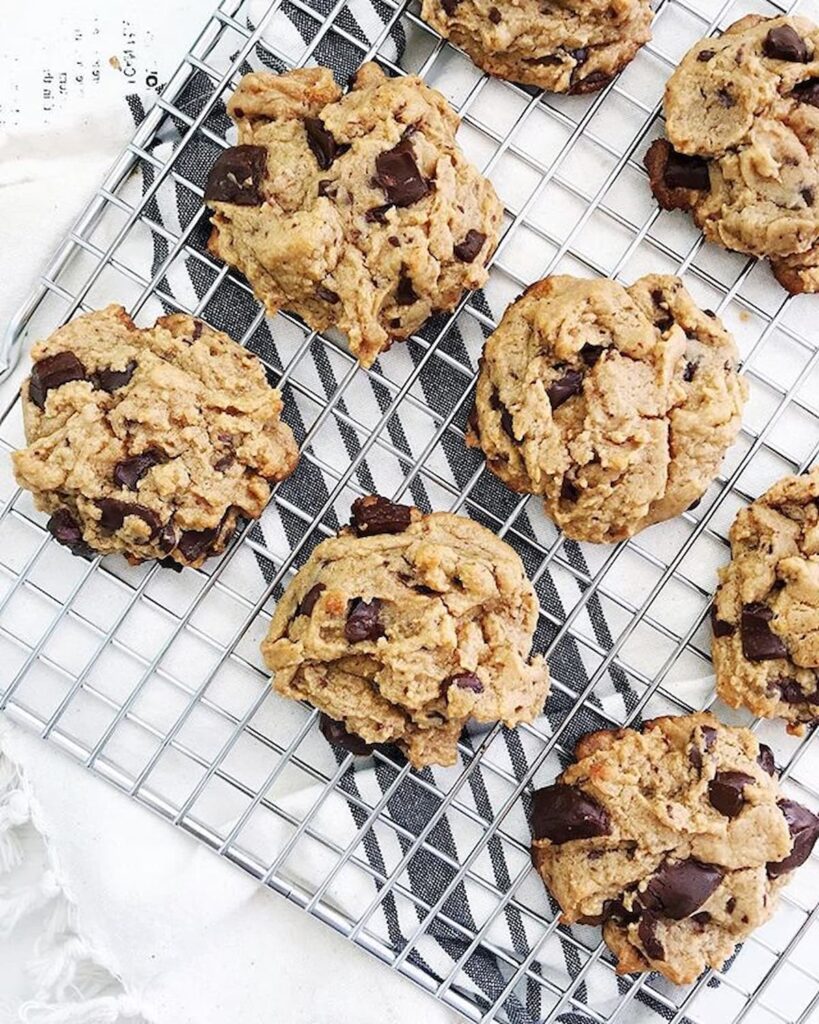
7. Stick To One Treat Meal/Week
Although protein can help to stabilize blood sugar levels, it’s still important to not have too many sugary treats while working toward a weight loss goal. Thankfully, there are zero sugar yummy “treats” that you can have without actually considering it as a “treat”. Try my zero sugar hot chocolate recipe with the video below.
8. Walk 15 Minutes A Day Outside
Walking outside has been found to help lower cortisol levels.(5) Because high levels of cortisol are directly tied to weight gain around the belly, taking a stroll through a natural environment (like a park, garden, beach or forest) can aid in your weight loss journey.
9. Don’t Add Sugar To Your Coffee (Or Tea)
Sugar added into liquids are quickly absorbed into the blood supply and can therefore rapidly spike the storing hormone insulin.
Related: 10 Things You Can Add To Your Coffee That Won’t Break A Fast
10. Cut Out Bread, Rice And Pasta
At least for now. Each of these foods have very high glycemic loads. For example, white rice has a glycemic load of 46.(6) Something is considered “high glycemic load” when it scores at or above 20. Instead, try using alternatives such as cauliflower sandwich thins, zucchini noodles and hearts of palm pasta.
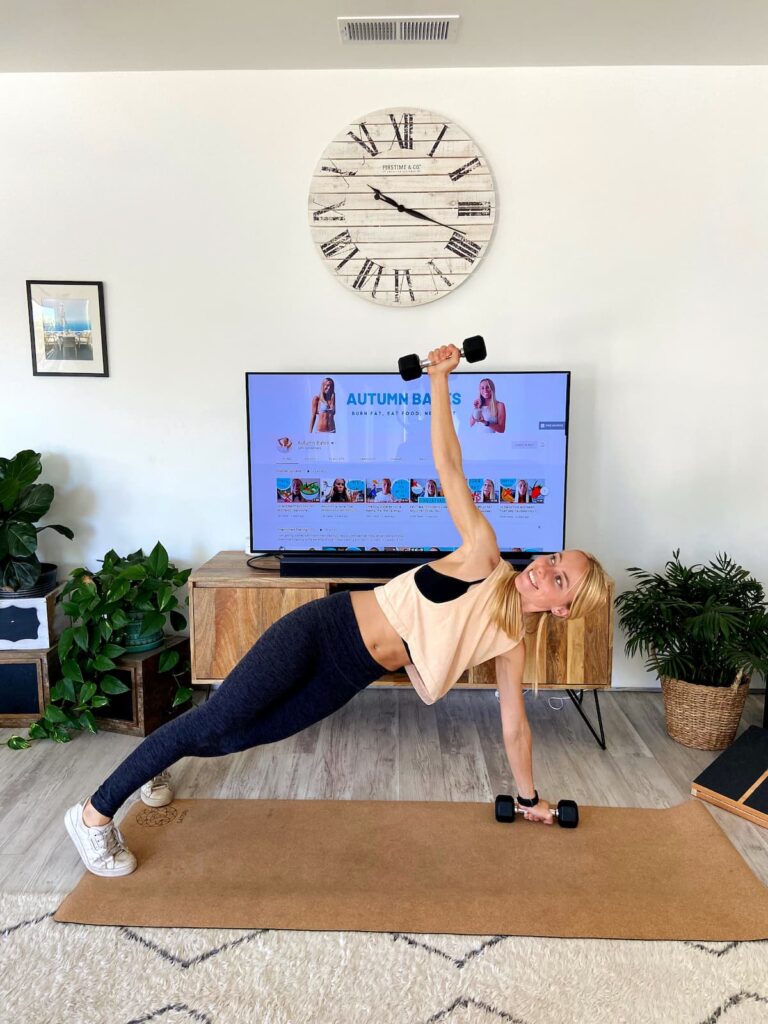
11. Add 2 Days/Week Of Lower Body Workouts
Strength training in general has been found to help improve insulin resistance.(7) And considering the lower body contains significantly more muscle mass than the core or upper body, you can get more “bang for your buck” with these types of workouts. Of course, make sure to balance it out with upper/core workouts… just don’t skip leg day.
Try my 3 week strength training workout plan included in the 21 Day Intermittent Fasting Program!
12. Pair Collagen With Complete Protein
Protein alone is a useful tool to boost satiety and maintain muscle mass. But if you struggle with sugar cravings, try pairing collagen with your protein sources. This has been found to significantly boost feelings of satiety.(8) You can add a scoop of collagen into your favorite low sugar, high protein smoothie recipe (like this one) or use a natural source of collagen from bone broth in your next soup or stew.
13. Don’t Pair Cheese With Crackers
Cheese isn’t the problem… it’s what it’s usually paired with that can be an issue. Instead of pairing cheese with refined and starchy crackers, try having it on the side of a meal or chopped into your favorite salad.
14. Get 8 Hours Of Sleep
Sleep quality and quantity are both important for balancing cortisol levels and preventing excessive hunger the next day. Take an honest look at your sleep schedule and see if there’s room for adjustment. Perhaps you can trim your usual Netflix time to 30 minutes instead of an hour so that you can get some extra zzz’s?
Related: This Woman Lost 47 Pounds With Intermittent Fasting | Here Are Her 10 Tips!
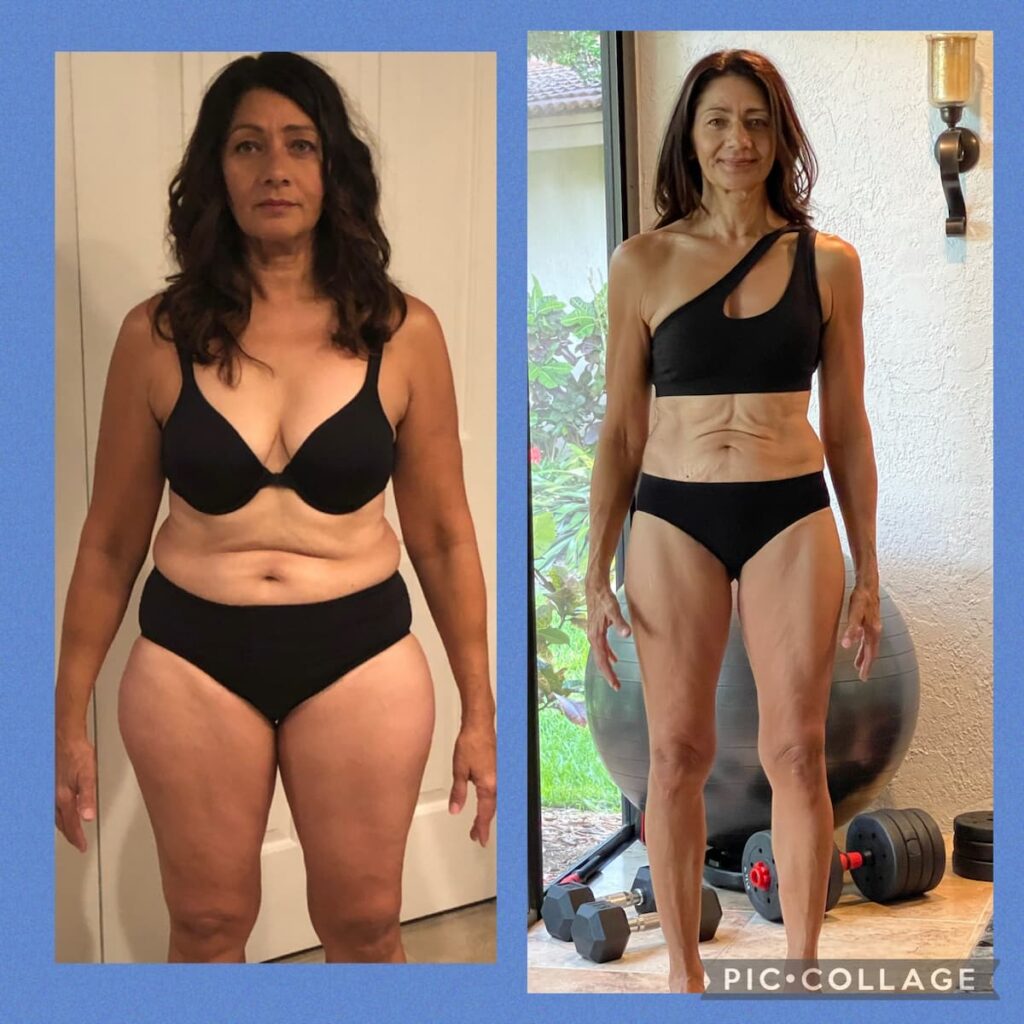
15. No Tech 30-60 Minutes Before Bed
On top of allowing for enough time to sleep, it’s also crucial to improve sleep quality. Watching TV or scrolling on your phone right before bed can prevent the body from releasing the sleep hormone melatonin.
16. Use Intermittent Fasting…
… But break your fast earlier in the day. Studies have found that by breaking your fast and ending your eating window a bit earlier in the day, you can help your body become better at burning fat as fuel.(9) Instead of eating your last meal at 9 or 10pm, see if you can finish up by 6 or 7pm.
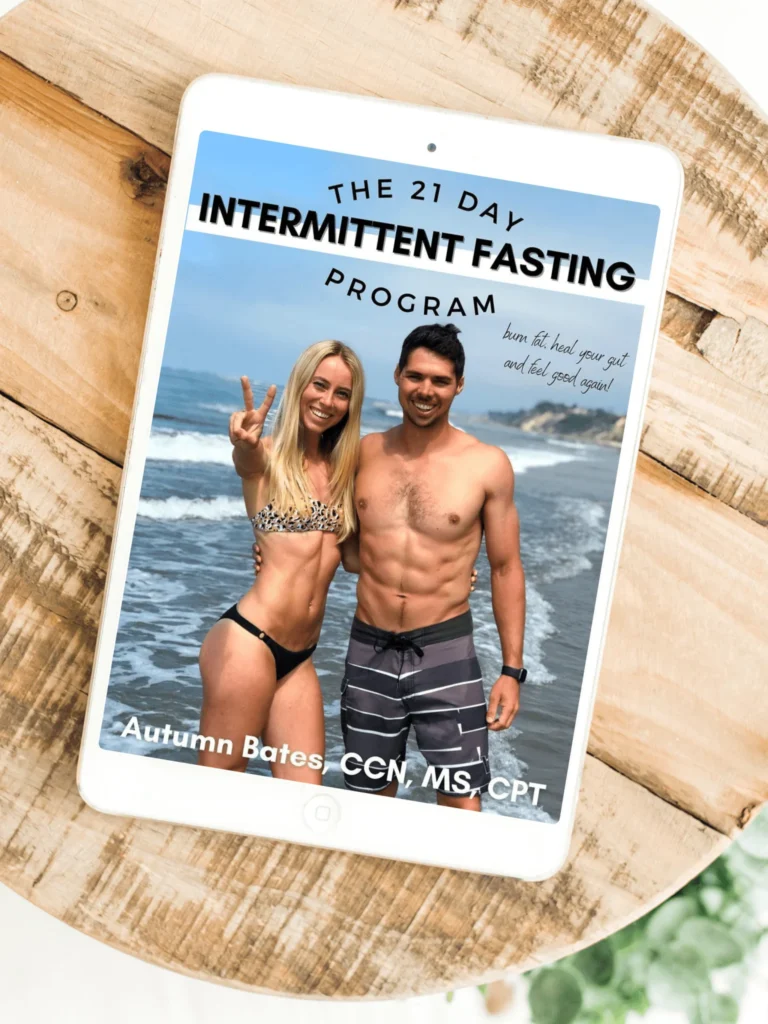
Tap into fat burning
The 21 Day Intermittent Fasting Program
The 21 Day Intermittent Fasting Program provides step-by-step strategies to help you use Intermittent Fasting with delicious, protein-packed meals to support fat loss, reduce hunger, and boost gut health.
17. Eat Eggs Instead Of Oatmeal
Eggs have been found to be significantly more satiating than oatmeal.(10) Plus, eggs are considered high DIAAS proteins. Try scrambling up eggs with some high quality cheese at your first meal.
18. Switch To Full-Fat Dairy
Low-fat dairy products tend to be high in insulin spiking sugar. Plus, studies have found full-fat dairy products can actually be beneficial at preventing weight gain and obesity.(11) My favorite full-fat dairy products are those that are also rich in protein, such as cottage cheese, greek yogurt and hard cheeses.
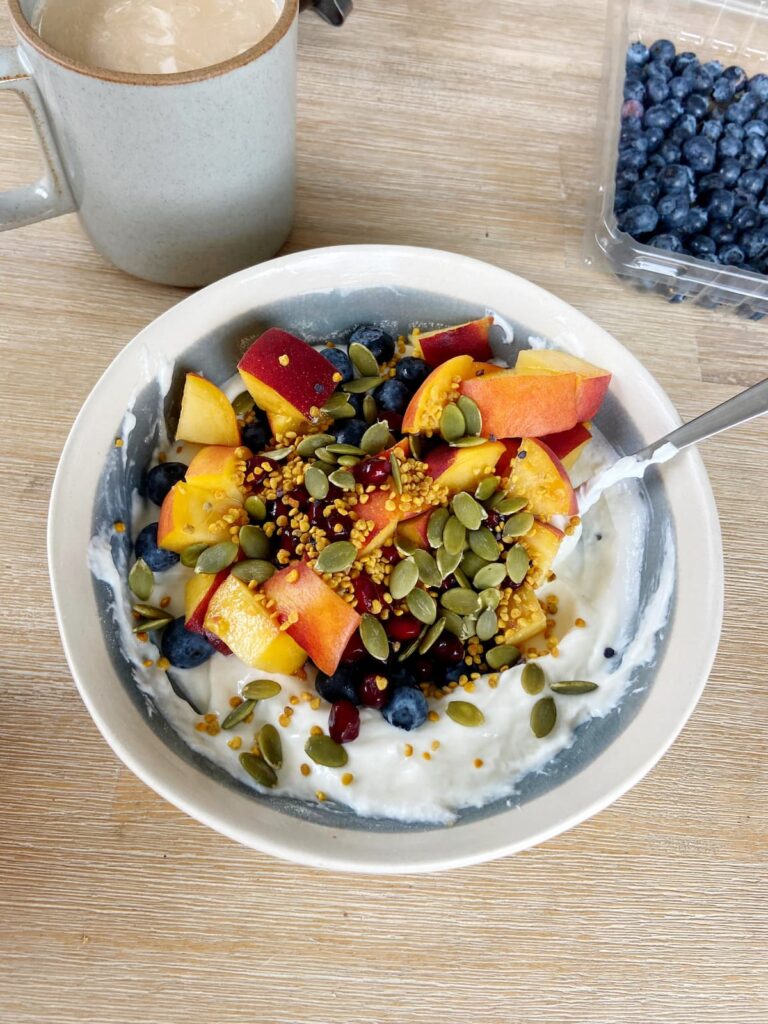
19. Stick To Water, Coffee, Tea And Sparkling Water
No fruit juice, sweetened coffees or sodas. These are all very high in sugar. Even many “healthy” drinks, like kombucha and certain green juices, are still fairly high in sugar. Try fun sparkling water brands like Spindrift for a boost of flavor without the sugar.
Related: 3 Cozy Coffee Recipes That Have ZERO Sugar!!
20. Don’t Snack
Every time we eat, it causes the body to release the storing hormone insulin. Instead of grazing throughout the day, try focusing on 2-3 satiating meals filled with high quality sources of protein, fat and fiber to allow insulin to naturally dip down between meals.
Studies
https://www.ncbi.nlm.nih.gov/pmc/articles/PMC4423826/
https://dasilvainstitute.com/glycemic-index-and-glycemic-load-for-100-foods/
https://diabetesjournals.org/care/article/38/7/e98/30914/Food-Order-Has-a-Significant-Impact-on
https://www.frontiersin.org/articles/10.3389/fpubh.2019.00376/full
https://www.uptodate.com/contents/image/print?imageKey=PC%2F71978
https://academic.oup.com/jcem/article/96/9/2898/2834715
https://pubmed.ncbi.nlm.nih.gov/19185957/
https://www.ncbi.nlm.nih.gov/pmc/articles/PMC6658129/
